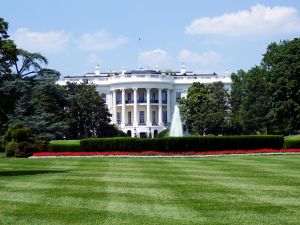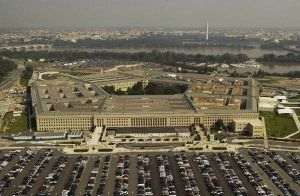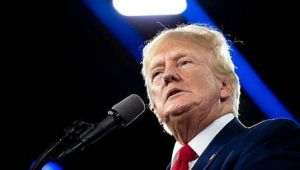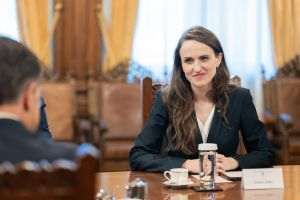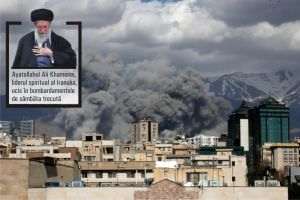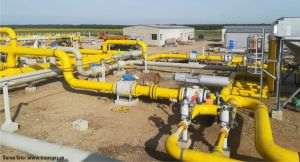
The year 2020 will be marked by three events with a major impact on Romania's development: The European Union will adopt the new 2021-2027 financial perspective and we expect our country to be allocated a volume of European funds at least as high as the one it got in the 2014-2020 financial perspective; the political parties in Romania will finalize their electoral programs for both local and parliamentary elections, with a 2024 time frame; the Romanian Government will finalize its priority objectives for the negotiation with the European Commission of the new Partnership Agreement for the period 2021-2027, including the requirements that we will have to meet for accessing European funds.
As a result, 2020 requires a special strategic thinking effort, as the governing programs of the political parties for the period 2021-2024 will have to meet specific requirements:
• Ensuring coherence with the 2021-2027 financial perspective of the European Union and with the priority objectives that Romania wishes to include in the Partnership Agreement;
• Consistency with the public investment program that the Romanian Government has the obligation to draft for the 2021-2027 financial perspective, by collaborating with the political parties and representatives of the business sector and other civil organizations;
In order to be credible, any program of government of one political party or another for the 2021-2024 period requires a projection of Romania's budget to ensure the consistency and coherence of the economic and social policies proposals included in the program.
This strategic thinking effort will have to answer a fundamental question for the next stage: how will Romania change from the production of goods and services, mainly with relatively little added value, to the production of goods and services with increased added value. Without that switch, Romania will not be able to raise the living standard and can remain stuck in what economists call the "middle income trap". And that transition requires increasing the productivity and competitiveness of products and services, by introducing new product and process technologies, in the sectors where we can develop competitive advantages. And those new technologies must meet the criteria of a sustainable economy with a low fossil fuel content and of the digital economy.
The government has the obligation to draw up the public investment program for a period of time that coincides with the new European 2021-2027 financial perspective. Only with such a program, passed in the Parliament and faithfully implemented, can we avoid errors and underdevelopment of the infrastructure in all areas of public interest (transportation, health, education, sewage, wastewater treatment, waste recycling, etc.), as well as supporting some processes favorable to development (such as encouraging small entrepreneurs, research, computerizing public services, renewable energy).
The drafting of the public investment program requires not only the setting of priorities, but also the evaluation of the available financing resources (funds from the public budgets, European funds, domestic and foreign loans, public-private partnerships, etc.), as well as the meeting of the requirements for accessing European funds, respectively: each investment objective should be included in the development strategy of the economic sector its pertains to; for each investment objective, secure the entire necessary financing, regardless of the source (European funds, own contributions, loans, etc.); the cooperation between the central and local authorities in achieving the investment objectives.
In preparing the electoral programs, the political parties should put up for public debates a series of options for the future development of Romania.
Public services at European standards. Romanians want quality public services (healthcare, education, justice, public administration, personal safety, etc.). That quality can only be provided by modern and efficient institutions with adequate financial resources. Sure, we can eliminate the excessive spending from the budget, we can increase the tax collection rate, by cutting tax evasion and computerizing the fiscal system, but we cannot bypass the underlying problem: Romania has one of the lowest weights of tax revenues in the GDP out of the entire European Union.
If we want to keep a low degree of taxation, between 27 and 30% of GDP (the figures seem slightly undervalued given the economic activities included in the GDP, but which are legally not taxed), compared to over 40% in the developed EU member states, then it is necessary to increase the contribution of the beneficiaries of public services, together with some solidarity measures for the disadvantaged. I believe that, at least at the current stage, until it reaches the median EU development level, Romania should keep a low tax rate. Subsequently, after reaching this level of development, a reassessment of the current tax rates or possibly the introduction of the progressive taxation principle in the fiscal policy can be considered.
Adoption of the euro. The EU wants to increasingly focus its decision-making power and resources in the Eurozone. Romania must make a firm commitment to move to the Euro. There are forces in Romania that profits from the current situation and want a change to the Euro as late as possible. "The problem of sooner or later" is already becoming less important. What is essential is for Romania to specify the time horizon when it wishes to fulfill the requirements for the switch to the Euro and to act in that regard. Bulgaria will move to the Euro ahead of Romania and increase its competitive advantage in the tourism industry and beyond.
Labor market and workforce shortage. As long as the standard of living in Romania is not significantly close to that of the EU, the labor force, at all skill levels, will continue to seek opportunities in developed countries. In the short term, Romania must specify the immigration policy it wants to follow, and in the long term, encourage the birth and return of the workforce that went abroad.
Territorial administrative reform. We have a large number of territorial administrative units that do not cover their operating expenses (salaries, maintenance, etc.) from their own incomes, but have received the right by law to set their remuneration by themselves. This is something that's unheard of and must be eliminated. Territorial administrative reform has been postponed by each government, although development is occurring more and more around large cities (development poles) that attract human and financial resources, and which need more decision-making power in meeting the requirements of the respective communities.
Reinventing governance. Romania needs a government that will achieve its goals effectively. The quality of government, of state institutions has become an important factor of competitiveness in the global economy. Streamlining the bureaucracy cannot be left at the discretion of each ministry or local authority (bureaucracies always justify their existence). There is a need for a team under the authority of the Prime Minister or the Deputy Prime Minister to initiate and coordinate the revision of existing legislation, the increase in effectiveness of public services, including the transition to e-government at all levels of the state authority and public administration in the service of the citizen.
Finally, on a global level, we must start from the fact that Romania's economy is relatively small. The economic development of Romania, as an open economy, is conditioned by its efficient integration into the international circuit of goods, services, labor force and capital. The driving force behind this integration is represented by the competitive Romanian companies, supported by pro-business public policies. Therefore, any public policy proposal made by political parties must be subjected to the competitiveness test.





